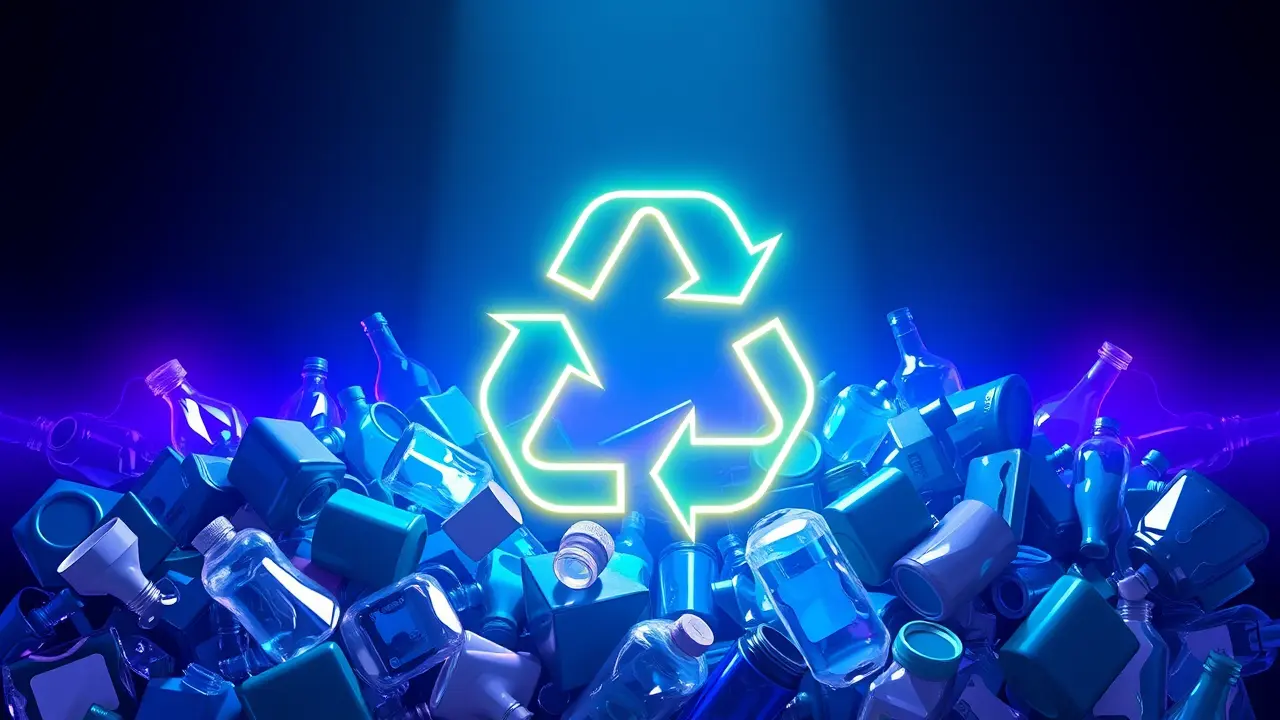
SciencechemistryGreen Chemistry
MacroCycle's New Recycling Method Cuts Energy Use for Plastics
RA
Rachel Adams
2 weeks ago7 min read1 comments
In a development that could fundamentally reshape the environmental calculus of our throwaway culture, the biotech firm MacroCycle has unveiled a novel recycling methodology that dramatically slashes the energy required to reconstitute plastic waste into new material. This isn't merely an incremental improvement; it's a potential paradigm shift, promising to lower production costs so significantly that recycled plastic could, for the first time, become a genuinely cost-competitive rival to virgin plastic derived from fossil fuels.The implications ripple far beyond the laboratory, striking at the very heart of the plastic pollution crisis that has choked our oceans and infiltrated the most remote ecosystems. For decades, the recycling industry has been hamstrung by a brutal economic reality: the energy-intensive processes of collecting, sorting, cleaning, and melting down post-consumer plastics often made the final product more expensive than simply manufacturing new polymer from petrochemicals.This economic disincentive created a vicious cycle where low demand for recycled content kept production volumes—and thus innovation—stagnant, while mountains of waste continued to grow. MacroCycle's breakthrough, rumored to involve a proprietary enzymatic or catalytic process that breaks down polymers at lower temperatures and pressures, directly attacks this core inefficiency.Imagine the industrial equivalent of a precise biological scissor, snipping apart plastic chains with minimal energy input, compared to the traditional brute-force method of thermal decomposition which is akin to using a blast furnace to melt a snowflake. The potential environmental dividend is staggering; if the manufacturing sector, from packaging giants to automotive suppliers, could switch to a low-energy recycled feedstock without incurring a financial penalty, the reduction in global carbon emissions would be measurable.We've seen similar tectonic shifts before, such as the plummeting cost of solar energy that transformed renewable power from a niche subsidy-dependent alternative into the cheapest source of electricity in history. MacroCycle's method could do for plastics what photovoltaic innovation did for energy, decoupling material production from fossil fuel extraction and its attendant greenhouse gases.However, cautious optimism is warranted. The history of green technology is littered with 'miracle' solutions that faltered at scale, whether due to unanticipated technical bottlenecks, supply chain limitations, or resistance from entrenched industrial interests.The petrochemical industry, a behemoth with deep political roots and massive infrastructure investments, is unlikely to cede market share without a fight, potentially lobbying against policy changes that would favor recycled content. Furthermore, the success of this technology hinges on the creation of a robust and contamination-free waste stream, a logistical nightmare that municipalities worldwide still struggle with.Expert commentary from environmental economists suggests that for MacroCycle's innovation to achieve its full potential, it must be coupled with aggressive extended producer responsibility laws and standardized global packaging designs to simplify sorting. The possible consequences are a future where the linear 'take-make-dispose' model is finally supplanted by a genuine circular economy, where a plastic bottle is not a symbol of waste but a valuable resource to be perpetually looped back into the system. This is more than a technical fix; it is a crucial step in realigning our industrial metabolism with the finite carrying capacity of the planet, offering a tangible thread of hope in the otherwise grim narrative of anthropogenic environmental degradation.
#featured
#MacroCycle
#plastic recycling
#energy reduction
#cost competitive
#TechCrunch Disrupt 2025
Stay Informed. Act Smarter.
Get weekly highlights, major headlines, and expert insights — then put your knowledge to work in our live prediction markets.
Related News
Comments
Loading comments...
© 2025 Outpoll Service LTD. All rights reserved.